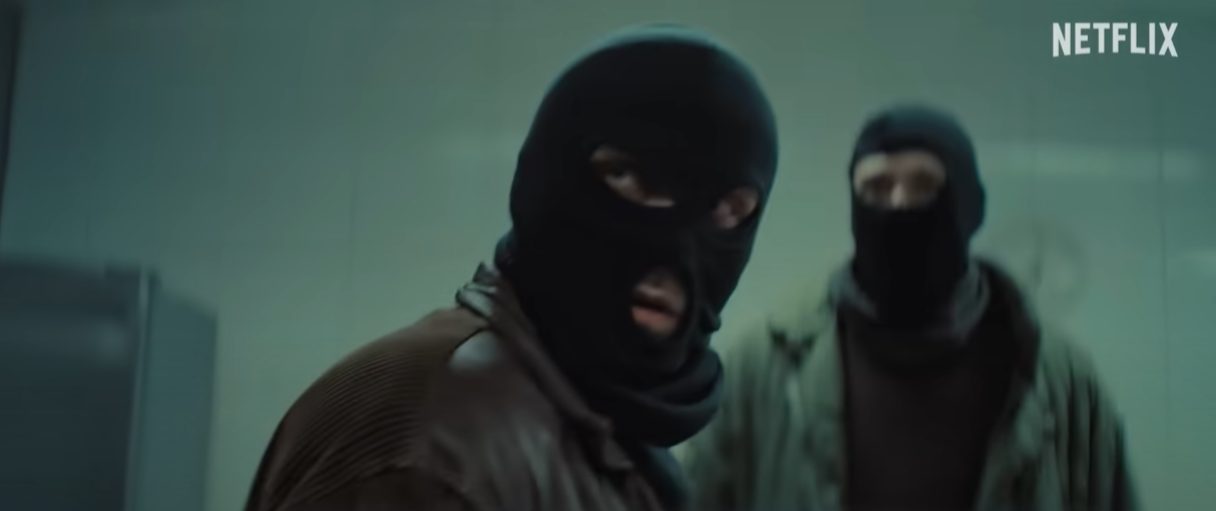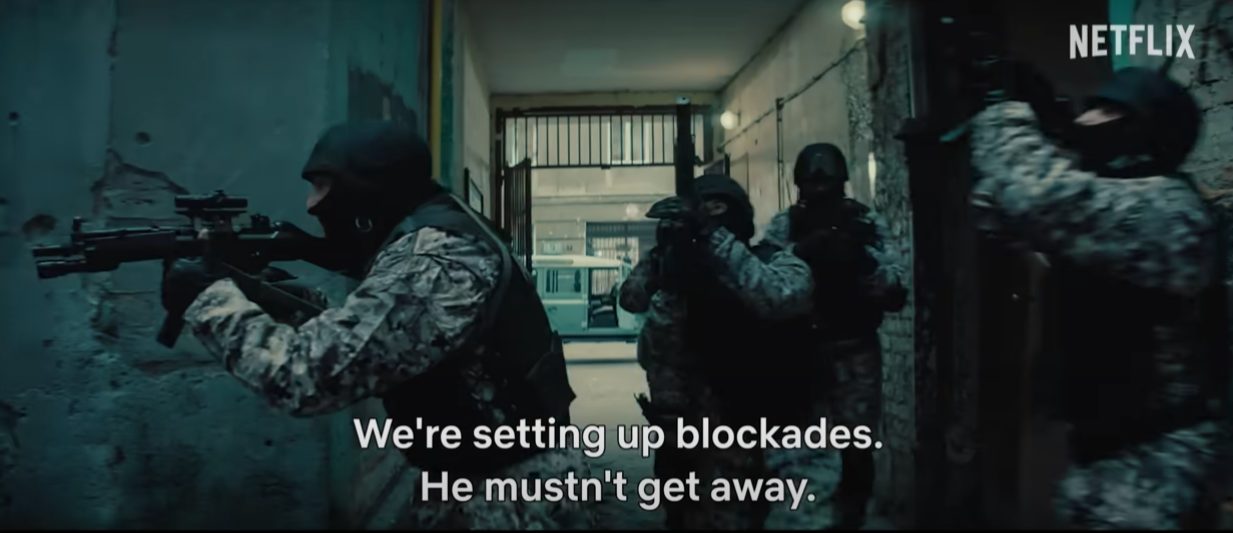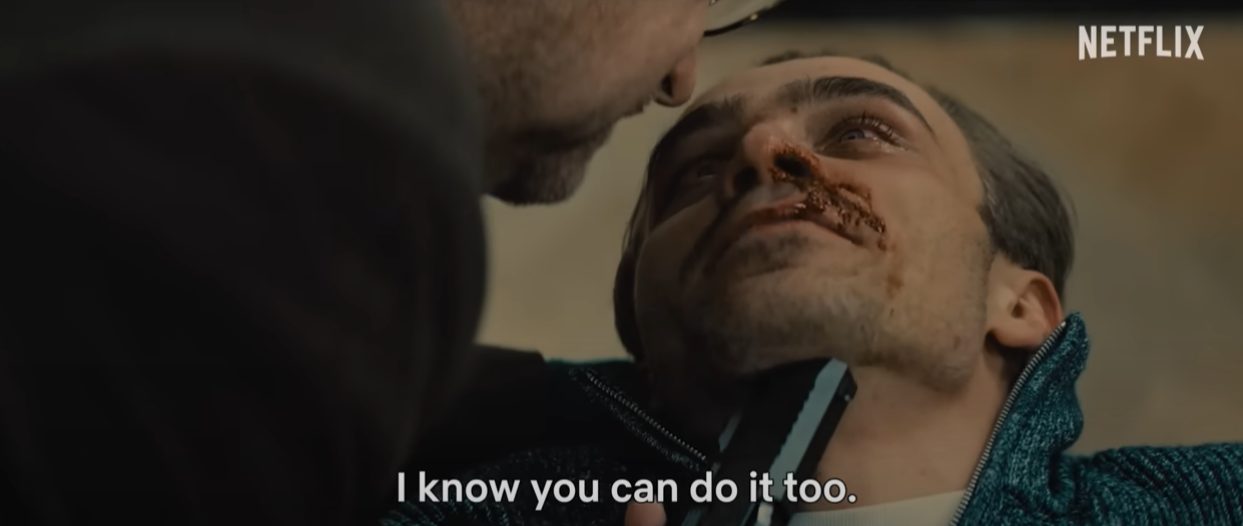“Justice” (original title: “Napad”) is a 2024 Polish crime drama directed by Michał Gazda. The film is inspired by a real-life bank robbery that occurred at a Kredyt Bank branch on Żelazna Street in Warsaw.

Plot Overview
Set in the early 1990s, the story follows Tadeusz Gadacz (Olaf Lubaszenko), a former police officer dismissed due to his associations with the previous Communist regime. Living a secluded life, Gadacz is approached by a state prosecutor who offers him reinstatement if he can solve a recent bank robbery that resulted in the deaths of three female employees and a security guard.

The Heist
Teaming up with a young policewoman, Aleksandra Janicka (Wiktoria Gorodeckaja), Gadacz delves into the investigation. Their primary suspect is Kacper Surmiak (Jędrzej Hycnar), a security guard who conveniently swapped shifts on the day of the robbery and possesses a seemingly solid alibi. As Gadacz probes deeper, he uncovers a web of deceit involving Kacper and his two friends, Bartek and Marek, who orchestrated the heist driven by personal motives, including Kacper’s desire to provide a better life for his sister.

Gadacz employs unorthodox and morally ambiguous methods to pressure the trio, leading to internal conflicts among them. The tension escalates as Kacper’s desperation results in further violence, including the elimination of his accomplices to cover his tracks. Ultimately, Gadacz’s relentless pursuit and psychological tactics corner Kacper, culminating in his arrest. The film concludes with Gadacz reflecting on his methods and the personal cost of his quest for justice.

Technical Review and Key Elements
Moral Ambiguity: The film explores the blurred lines between right and wrong, particularly through Gadacz’s ethically questionable investigative techniques.
Redemption and Justice: Gadacz’s involvement in the case serves as a potential path to redeem his tarnished reputation, raising questions about the true nature of justice.
Impact of Political Transition: Set against Poland’s shift from Communism to a new political era, the narrative reflects societal changes and the challenges faced by individuals during this period.
Daniel Hart, Ready Steady Cut: Rated the film 4.5 out of 5, describing it as “a serious, well-weaved Polish crime thriller with a clear vision.”
Juan Pablo Russo, EscribiendoCine: Praised the film for creating “an atmosphere of sustained tension, with a direction that avoids excess and a rhythm that pulls you into Gadacz’s inner conflict.”
On IMDb, viewers have rated “Justice” 6.5/10, indicating mixed to positive feedback.
Film Reception
“Justice” has been noted for its compelling performances, especially by Olaf Lubaszenko, and its realistic portrayal of post-Communist Poland. However, some critics have pointed out that while the film is competently made, it becomes somewhat predictable as it progresses, with the ending not delivering the desired impact.
Overall, “Justice” offers a gripping narrative that delves into the complexities of crime, morality, and the pursuit of redemption in a transforming society.
The Ending Explained
As the investigation comes to a head, Tadeusz Gadacz (Olaf Lubaszenko) intensifies his pursuit of Kacper Surmiak (Jędrzej Hycnar), the main suspect in the violent bank heist. Kacper, who initially seemed like a reluctant participant in the crime, reveals his darker side as he becomes more desperate. After eliminating his accomplices to cover his tracks, Kacper tries to flee with the stolen money.
Gadacz corners him in an abandoned building after a tense chase. Using psychological tactics and his deep understanding of human behavior, Gadacz manipulates Kacper into confessing his crimes. Kacper’s motivations are laid bare: his actions were driven by a mix of desperation, a need to escape his dire circumstances, and a misguided attempt to provide a better life for his sister.

Kacper is arrested, but the resolution is bittersweet. The families of the bank employees who were killed get a semblance of closure, but the damage caused by the robbery cannot be undone. Gadacz’s methods in solving the case, including bending the rules and exploiting Kacper’s vulnerabilities, come under scrutiny. The justice he delivers is effective but morally complex, leaving questions about whether the ends justify the means.
The film closes with Gadacz reflecting on his actions and his own troubled past. His successful resolution of the case earns him reinstatement in the police force, but he is left questioning the personal and ethical cost of his pursuit of justice. His journey is one of redemption, but it’s clear that his methods have taken a toll on his conscience.




